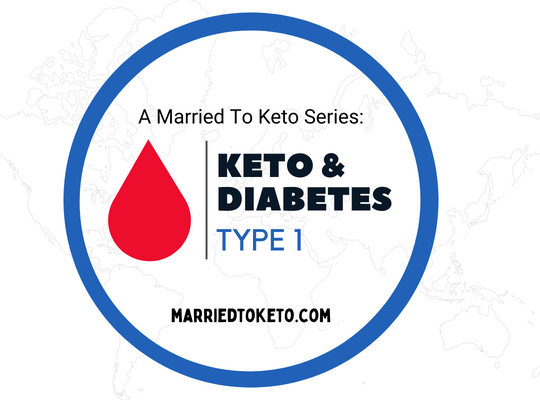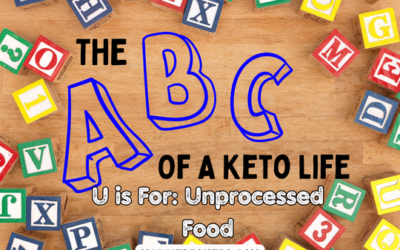Bill and I recently watched a documentary on keto (I know, we’re wild) and it was talking about using keto as a way to control diabetes. Since keto controls the amount of insulin your body needs, it seems like a no-brainer that those with diabetes should be on a keto diet. I started wondering how solid that research is, so I’m writing a series of blogs on diabetes and keto.
The Role of Insulin
Insulin is a hormone that the body uses to allow sugar into the cells to produce energy. Our pancreas makes it and pushes it out into the bloodstream. The insulin opens the door to our cells for sugar to go in and this gives us energy. Because the insulin is helping sugar go into the cells, there isn’t as much sugar in our bloodstream. As the amount of sugar in our blood lowers, the amount of insulin being made decreases.
Type 1 Diabetes
With type 1 diabetes, a pancreas doesn’t make enough insulin. There is not enough insulin to help the sugar get into cells to produce energy. So, the sugar instead builds up in the bloodstream. Type 1 is not due to diet. It’s caused by genetics, or being exposed to a virus that damages the pancreas. There is no cure for type 1 diabetes.
When you have type 1 diabetes, you are constantly thirsty. As a result, you are urinating constantly as well. You are often very hungry and feel weak and tired. Mood swings and irritability are another common symptom.
Why Type 1 Diabetes and Keto Might Seem Scary
People with diabetes are warned from the beginning about ketoacidosis. It’s a scary condition that happens when blood sugars run too high and an excess of ketones are produced. If left untreated, this condition can be life threatening. That’s scary!

However, when people are on keto, your blood sugars should be stable. Ketosis is when you are using fat instead of sugar to give your body energy. If doing keto properly, there should be no way to reach ketoacidosis. They are two very different things.
The Pros of Type 1 Diabetes and Keto
Since keto uses fat to burn energy rather than sugar, it seems like keto would be an ideal diet for people who need to control their insulin levels. One of the main benefits of keto is that we don’t experience the highs and lows that exist when we burn sugar. Our insulin levels are stable, so our energy levels are also stable. More and more health professionals are starting to look at keto as a good diet for people with diabetes of all types.
The Risks of Type 1 Diabetes and Keto
While the keto diet can be helpful with diabetes, it is important to regulate your insulin levels properly. Most people don’t need to have as much insulin if they aren’t eating carbs, because there isn’t the sugar in your bloodstream. If you take too much insulin, there is a chance your blood sugar levels might drop too low. This can lead to confusion, dizziness, slurred speech, and even loss of consciousness.
The other potential risk is that keto often leads to weight loss. For most of us, this is a benefit. But for people who are underweight, this could be a risk to their health.
Final Thoughts about Type 1 Diabetes and Keto
I am not a doctor or a scientist, so I would never recommend anyone start keto, especially if they have a serious health condition like type 1 diabetes. What I would encourage you to do is to do some research and have a conversation with your doctor. It is important that you monitor your ketones and your blood sugar regularly so you don’t take too much insulin. But, overall, more people are turning to keto to reduce the amount of insulin they need to take when they have this condition. Keto could be an answer to regulating diabetes.
Wendy





